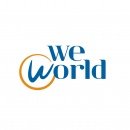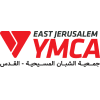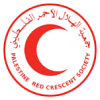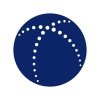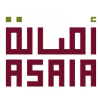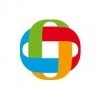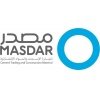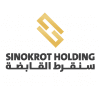Mapping the main players in the cultural and artistic sector
TERMS OF REFERENCE
Mapping the main players in the cultural and artistic sector
1. Introduction
WeWorld-GVC is an Italian independent organization born from the merger between GVC NGO (founded in Bologna in 1971) and WeWorld Foundation (founded in Milan in 1999), with the aim of increasing the impact of their Development Cooperation and Humanitarian Aid projects in 29 countries worldwide, including Italy.
Children, women and youth, actors of change in every community, are the protagonists of WeWorldGVC projects and campaigns in the following fields of intervention: human rights (gender equality, prevention and contrast of violence against women and children, migrations), humanitarian aid (prevention, aid and reconstruction), food security, water and sanitation, health, education and learning, socio-economic development, environmental protection, global citizenship education and international volunteering.
2. Background of the action
The overall objective of the initiative is to contribute to the promotion of gender equality in Palestine by fully embracing the rights-based approach.
The intervention strategy, in general, pursues the concept of adaptive leadership, which involves the active participation of citizens in an increasingly complex world, to contribute to their own well-being and that of their community both through individual lifestyles and through activities in support of others. This approach, increasingly used in development programs, takes into consideration and replicates examples of positive deviance, a technique that facilitates positive and endogenous behavioural changes within communities, increasing the sense of individual and community belonging and thus promoting their sustainability.
Specifically, the project aims at promoting women's economic empowerment and at fostering social change on gender equality in Palestinian society, through support to women entrepreneurs and through actions dedicated to the sustainability of their economic activities, promoting entrepreneurship that respects gender issues and labour law, with a significant component dedicated to innovation and the construction of positive and replicable gender models.
The diffusion and contextualized reformulation of the concept of gender equality will be encouraged also through the realization of cultural events that will give space to the artistic productions of young people and women, which will constitute a channel of communication able to spread messages on the value of gender equality in communities, reaching and involving a wide audience, with the aim of triggering a behavioural and social change.
Regarding women's economic empowerment (WEE), the strategy is twofold: on the one hand it is based on the promising WEE practices that already exist in Palestine, with the aim of understanding them in detail and replicating them in the same context, through a participatory approach with stakeholders and beneficiaries. The final beneficiaries will be women in the management of micro/small/medium enterprises (MPMI) whose economic activity will be able to give employment opportunities to other women in the community and be a model of decent work for female employees, with a focus on long-term sustainability.
On the other hand, the intervention aims at enhancing the value of women and young people active in non-traditional sectors for income generation, specifically the artistic and cultural sector. This field of intervention
will give visibility to artists and also to young artists who deal with issues in contrast with traditional gender stereotypes. The action will involve a wide audience with cultural and artistic events that will promote the income generation of the artists involved and at the same time open the way for the theme of gender equality. The involvement of young people and women is crucial to give space to new ideas to counter stereotyped gender roles and introduce a component of innovation and long-term sustainability.


3. Scope and objective of the consultancy
Mapping the main players in the cultural and artistic sector
The mapping activity constitutes the preparatory phase for the implementation of the activities related to the cultural sector (Activity 3). The mapping aims to identify the key actors in artistic production, and therefore the potential beneficiaries of financial support, at local and national level. Secondly, a consultation of the identified actors will be carried out, in order to assess the participation of young people and women in cultural activities and to identify geographical areas and contexts with fewer or no cultural initiatives. The action will focus more on the production of audiovisual content, given the immediate impact, the communicative potential and the multiplication of this effect through the social media network, thus exposing more individuals to gender issues. The expert who will carry out the mapping will organise and conduct an online consultation, to facilitate community participation and the consultation process, to identify the main actors in the audiovisual sector with the aim of designing a cultural and artistic map. The data resulting from the activity will serve as a basis for the involvement of participants in the training (A2.3), who will become potential beneficiaries of the funding (A2.4). In line with previous WeWorld GVC experiences, the mapping will be then validated.
4. Expected deliverables
Methodology, data collection tools, timeline and logistics
Within the first month since the consultancy appointment, the consultant will provide a detailed plan on how to reach the expected result submitting: a reasonable timeline, that encompass the logistic difficulties derived by the Covid-19 pandemic, and the data collection tools which will be used throughout the data collection process.
Mid-Term report
A mid-term report will be submitted halfway throughout the consultancy period -the exact date will be defined by the aforementioned timeline- to provide updated information on the ongoing work and the preliminary survey results.
Mapping of organizations in the cultural sector and final report
The final product provided by the consultant will be the map of organizations in the cultural sector accompanied by a final completion report that should summarize key findings and consultancy process.
All deliverables will be submitted in English language -a translation into English will be provided when the original is in Arabic- in Microsoft Office compatible format (.docx/ .xlsx) and PDF.
5. Timeframe
The consultancy will provide all the requested deliverables by December 1st, 2020.
6. Requirements for applicants
The consultancy is open to all qualified individuals. The Evaluator is tasked to manage the entire process of mapping with partners and beneficiaries involved in the project implementation.
Key Qualifications of the consultant should be:
1. Relevant degree in Humanities, Arts, Development studies or a degree on International Humanitarian laws, International Development, Social Studies or any other relevant university degree;
2. Proven experience in the cultural/art sector;
3. Proven previous experience and expertise in similar initiatives;
4. Excellent oral and written English and Arabic;
5. Working experience in MENA countries is mandatory.
7. Payment
The applicant should provide a detailed budget breakdown of the costs involved for all activities carried throughout the consultancy, including consultant’s fees, data collection costs, translation costs if needed, etc.
The total payment will be divided into three instalments as follows:
1. 30% upon acceptance by WW-GVC of first deliverable “Methodology, data collection tools, timeline and logistics”;
2. 30% upon acceptance by WW-GVC of second deliverable “Mid-Term report”;
3. 40% upon acceptance by WW-GVC of last deliverables “Mapping of organizations in the cultural sector and final report”.
8. How to apply
Please submit the following documents as part of your application to: [email protected] stating as subject “Mapping the main players in the cultural and artistic sector 2020”
- Personal CV, indicating all past experience from similar projects;
- Contact details (email and telephone number);
- Brief description of the methodology proposed for the consultancy (max 5,000 characters);
- total amount of consultancy in Euros;
- contact of three references;
Deadline for receiving the applications is August 15th,2020.




